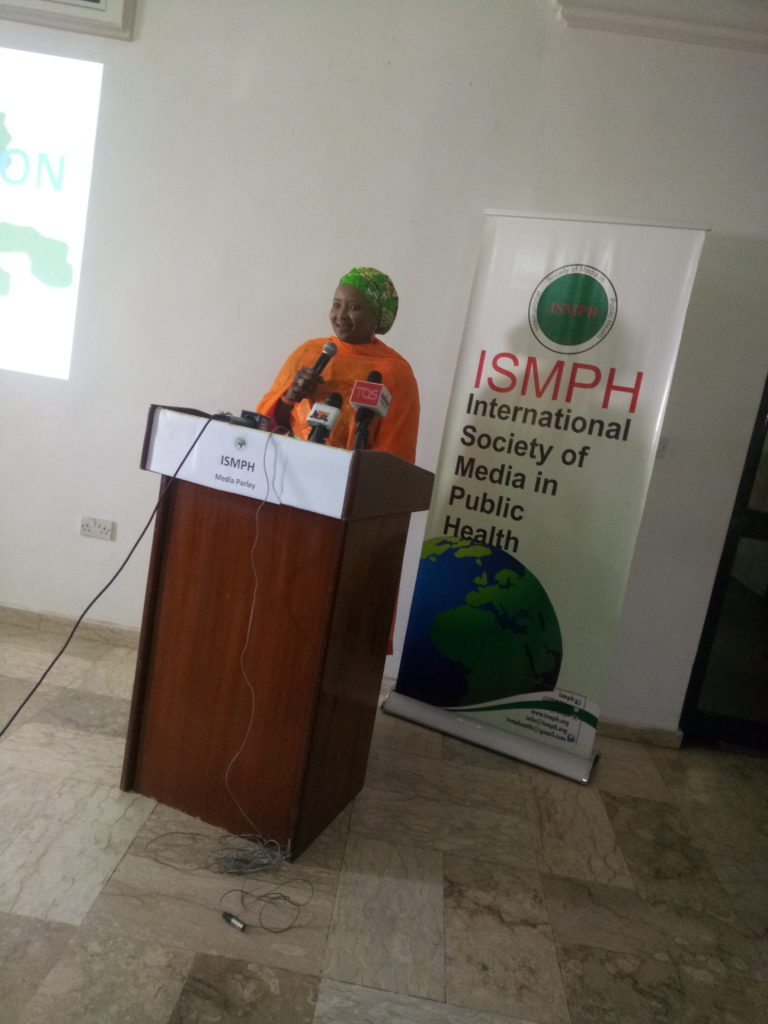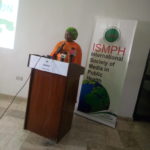By Asma’u Ahmad
The wife of the Kebbi State Governor, Dr Zainab Atiku Bagudu, has urged the media to increase their reportage on maternal and child health specifically on Severe Acute Malnutrition (SAM).
Zainanb Bagudu made the call at a media parley for editors and Chief Executive of media houses on Prevention and Treatment of Severe Acute Malnutrition in Nigeria (SAM) organised by International Society of Media in Public Health (ISMPH).
Delivery a paper on SAM situation in Kebbi state, Dr Zainab frowned at the burden noting the state as having 3.7 per cent of SAM, 88.8 per cent stunted children as well as 13.7 per cent wasting rate describing these as unacceptable.
She, however blamed the rate on lack of knowledge and awareness by mothers and other care givers on what and how to feed the children in the right manner and proportion.
She said the media has a high responsibility of taking the message to the grassroots
“The problem of the high burden of SAM in Kebbi and other parts of the country is lack of awareness, is about education. We have a lot of resources such as grain, vegetables, fruits which contains all the nutrients that our children need to be healthy and well nourished.
“The problem is the preparation, some will overcook the leave because of ignorance. We should use the things that we have such as corn, all forms of beans, soya beans, groundnut and give it in the right form, right proportion and quantity.
“We need the media to get the message to the grassroots that the rice, all the grain they grow is same with the Ready to Use Therapeutic Food (RUTF) that they collect at Primary Healthcare Centres to boost their children malnourished status, the same maize, milette among others, she said.
The wife of the governor identified some interventions of the the Kebbi state government to ensure reduction of SAM to include engagement of Community volunteers, community influencers, synergy with the wife of President among others.
She, however identified the media as key in curbing the rate of malnutrition across board.
“Media should use three major Nigerian languages in the course of their reportage to engage in local food demonstration for this will help to pass the message to the grassroots and reduce the burden of SAM in the country,” she added.
Earlier, Mrs Moji Makanjuola said the meeting was aimed at exposing the media to SAM epidemic in the country and to secure commitment by using them to hold policy makers accountable on SAM prevention and treatment through intense reportage.
Makanjuola explained that they have overtime influence policy direction of successive governments in the country and the world over.
She emphasised that the electioneering period offers the media outfit a rare opportunity to demand accountability from current policy makers and political aspirants.
Makanjuola who decried the rate of death due to SAM in the country however advocated for increased investment in child health and nutrition.
According to her, Nigerians should ask those seeking political offices make concrete commitments toward increasing investment on child health to cover child malnutrition.
She identified SAM as an epidemic in the country and urged governments and other stakeholders to prioritise child nutrition and health.
Makanjuola specifically noted that globally health is recognized as fundamental human rights due to its nexus with rights to life however, she noted that right to healthy living was still far from Nigerian citizens.
“Disaster, conflicts and insurgencies in Nigeria has greatly impacted on health and increased vulnerability to SAM.
“The United Nations Children’s Fund (UNICEF) estimated 2.5 million Nigerian under five children suffer from SAM every year with about 420,000 of them dying annually which means 1,150 Nigerian children dye every day from SAM.
“Therefore preventing and treating cases of SAM requires deliberate efforts by health and political decision makers.
“Governance is about the people. The key to addressing the issue therefore is by getting key policy makers, political and public spirited private organisations commit and take actions toward prioritising child health.
“Getting it right with food for children at their most vulnerable stage of development. Media as the fourth estate of the realm is a critical sector of governance, “she said.





